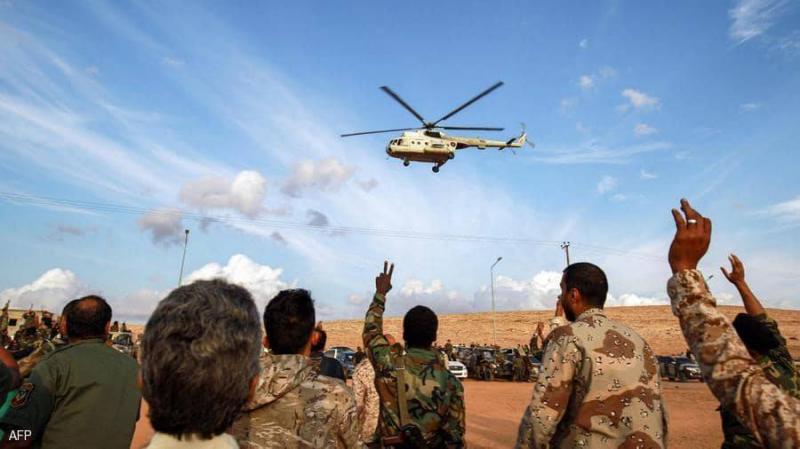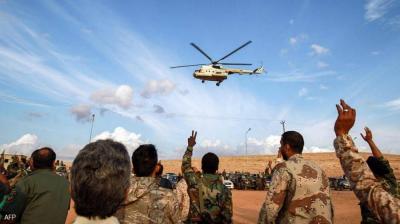Despite facing strong and continuous strikes from the Libyan army, which aims to eradicate it from the southern region, Al-Qaeda insists on establishing a foothold in the area. Observers attribute this insistence to the need for what is called "Al-Qaeda in the Islamic Maghreb" to have a space that allows it to carry out attacks in the neighboring Sahel region of Africa. They stated that the strikes from the Libyan army are of great importance so that terrorist organizations do not feel comfortable operating within Libya.
The Libyan army earlier announced the arrest of three leaders of the terrorist organization during a raid on the hideout of the terrorists in the town of Tarout in southern Libya. This town is not far from the vital area of Brak al-Shati, where the operation was carried out without any casualties.
### Ongoing Efforts
This action is part of ongoing efforts for months to track down extremist elements in the region. Informed sources told "Sky News Arabia" that those arrested are likely linked to the cell from the city of Ubari, which was apprehended last March with large quantities of weapons. The army had targeted a cell of seven Al-Qaeda members in Ubari last November, including leaders. Sources then revealed that the organization had assigned that cell to provide logistical support for its operations in several countries, including Mali and Niger.
Libyan political analyst Mohamed Al-Zubidi noted that there are terrorists active in the capital, Tripoli, and the western region in general, who have connections with militias there. They are responsible for supplying the cells in the south with weapons from various sources, and they are linked to extremist elements active in Niger, constituting a threat to the security of the entire region. Al-Zubidi asserted that fingers point toward an internationally known party "involved in supporting the activities of terrorist organizations," adding that many mercenaries brought into Libya are former ISIS members who had fought in Syria and Iraq, with many of them having infiltrated the south.
### Importance of Military Operations
Military analyst Moatasem Al-Hawaz emphasized the importance of such military operations to prevent terrorist organizations from carrying out their activities in any part of Libya. Al-Hawaz cautioned in an interview with "Sky News Arabia" that the recent focus on the political process and disagreements among Libyan parties has provided an opportunity for some terrorist cells to operate.
He confirmed that southern Libya and the west, particularly near the borders with Algeria and Chad, are among the most dangerous areas where terrorist cells are active, urging "the necessity of coordination among all branches of the armed forces to combat these cells."
Strategic expert Colonel Mohamed Al-Rajbani praised the army's ability to deal a heavy blow to "Al-Qaeda in the Islamic Maghreb." He added that army personnel carried out a qualitative operation in this vital area of southern Libya, managing to capture three "high-ranking" members of Al-Qaeda, although he did not reveal more about their identities due to the confidentiality of the investigations being conducted by security agencies with them.
The Libyan army, through its commander, Marshal Khalifa Haftar, confirmed its continuation of operations aimed at purging Libya from terrorist and criminal elements. The army has also deployed significant reinforcements to the south in recent months, coinciding with the severe turmoil faced by the neighboring state of Chad.




